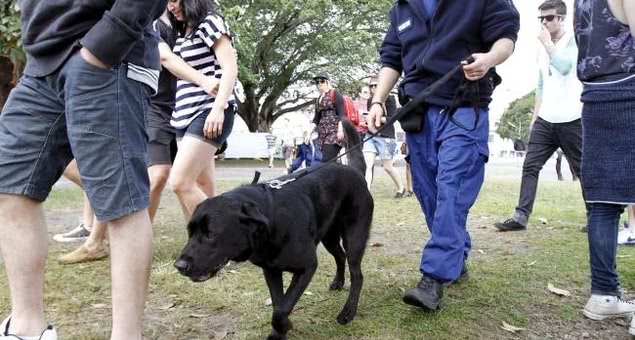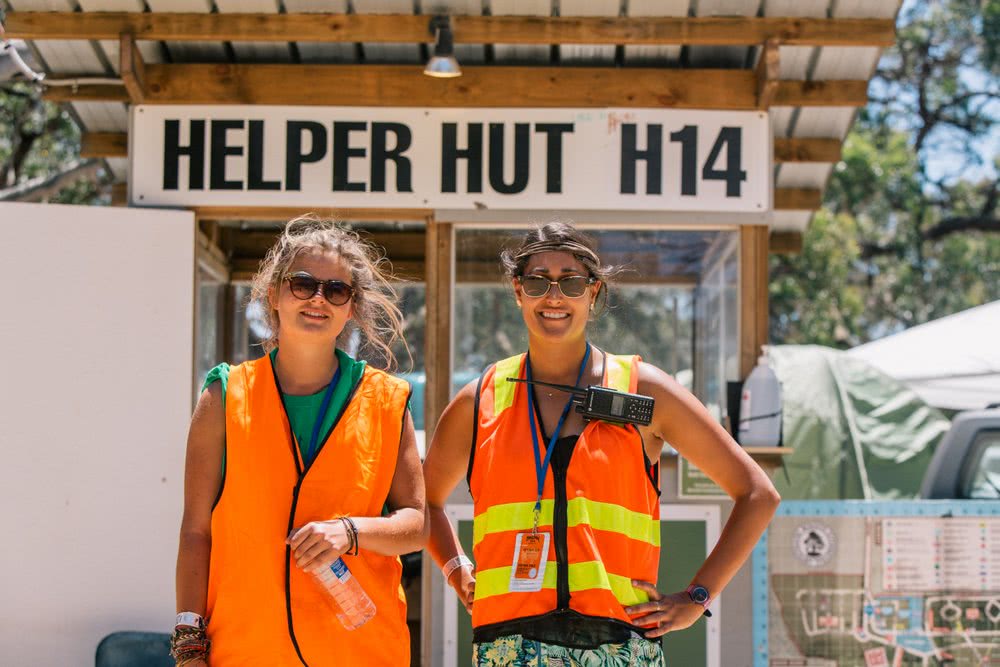It’s safe to say that Australians love themselves a music festival, almost as much as they like a drink or perhaps even the sneaky pill. While the latter may sound controversial, Australians rank as the world’s biggest users of ecstasy.
That’s all well and good, but when the two are combined, the results can sometimes be deadly, a fact we were reminded of in 2015. In a tragic turn of events, we saw five music festival punters die from overdose in as many months.
We all agree this has to stop. Nobody wants to see another reveller die as a result of ingesting drugs at a music festival. But we can’t seem to agree on just what the issue is and how we can best approach it.
It’s a debate that’s likely to rage on for a while before anything gets done, but at least there’s a debate, right? In the meantime, we thought we’d add to the debate and present five ideas that could make Aussie music festivals a little safer.
1. Get Rid Of Sniffer Dogs
This one has been repeated ad nauseam over the past 12 months and it’s sad that it still bears repeating but them’s the breaks. Sniffer dogs, besides being about as accurate at picking who’s carrying drugs as just flipping a coin, are also potentially dangerous.
A groundbreaking 2011 study by Lisa Lit published in the journal Animal Cognition tested the efficacy of drugs dogs. The dogs participating in the experiment issued a total of 225 alerts. Here’s the catch: there were no drugs whatsoever used in the study.
The research has led some to conclude that setting off a sniffer dog may have as much to do with a police officer’s subjective opinion of you as their dog. Recent data from NSW shows the vast majority of searches involving dogs fail to find any drugs.
This would be all well and good if drug dogs simply delayed people from entering the festival as quickly as they’d like to, but in addition to occasionally leading to unjustified strip searches, punters have been known to down all of their drugs at the sight of dogs, overdose, and die.
2. Introduce Pill-Testing
This is another one we find ourselves going back to again and again and again and yet the message still hasn’t sunk in to the heads of politicians or law enforcement, who continue to push a hardline stance on drugs under the guise of protecting young people.
The fact of the matter is if they really wanted to protect young people and save lives, they would at the very least launch an enquiry into pill-testing if not an outright trial. Out wait, they did do that at one point, so what happened?
2015 saw numerous overdose-related deaths at Australian music festivals, deaths that could have been prevented had those punters been able to test and know precisely what was in their drugs and then make informed decisions with that data.
ER doctor and drug harm minimisation advocate Dr David Caldicott said the fact that deaths keep occurring despite the presence of police operations at music festivals means “we’re doing something wrong”.
In places such as Europe, where pill-testing is commonplace, studies have proven the impact of pill-testing on the drug-taking habits of revellers. One Austrian study found that 50 percent of those who had their drugs tested said the results affected their consumption choices.
Two thirds said they wouldn’t consume the tested drugs and would warn friends in cases of negative results. This highlights the role pill testing services play in public outreach, providing crucial information to a population that is often hard to reach.

Image via Huffington Post
3. Introduce Amnesty Bins
One of the arguments that the government and law enforcement often give when pressed on pill-testing is that introducing pill-testing programs would essentially be condoning drug use, because you’re allowing people to do drugs, just safely.
That’s fine, but what about amnesty bins? The practice was implemented in Western Australia after the death of 17-year-old Gemma Thoms at the Big Day Out in 2009. Thoms ingested two tablets in a panic before entering the festival, scared that police sniffer dogs would detect the drugs.
While police later claimed that a very small quantity of drugs was actually placed in amnesty bins, which were used at the subsequent Rock-It festival in Joondalup, at least the drugs that were placed inside didn’t go into the bodies of punters in large doses.
Amnesty bins also skirt that other argument beloved by those in government especially – cost. Amnesty bins are cheap, don’t take up a lot of room or resources, and basically just sit there for anyone who wishes to use them. We really can’t figure out why they’re not used more.
4. On-Site Breath Testing
This one is more about the journey home from the festival than the entry into them. You know those self-serve breathalysers you see at pubs and clubs? The ones that give you a straw and then tell you how hammered you are? Well, we should have them at festivals.
Yes, some festivals already implement third-party booze buses, but they should be universal and more than just a dimly lit bus whose purpose you find yourself wondering about as you make your way out of the festival grounds. The issue here is really awareness.
5. Volunteer Helper Crews
Remember Red Frogs at Schoolies? They were these friendly volunteers that provided support for schoolies who’ve fallen on hard times because they’ve simply had too much to drink, lost their friends, having a minor nervous breakdown, or just feel like an Allens lolly.
Now peep this: the same thing, but at music festivals. Meredith pretty much get the job done with their Helper Huts, where punters can go when they need, well, help. The friendly volunteers manning the huts help anyone who needs a hand, whether they’re unwell or just lost.
This is perfect for a festival the size of Meredith, but at larger music festivals, roaming volunteers could go the extra mile. See, when you’re feeling unwell as a result of over-intoxications, it can be hard to find help.
You could be lost and not know where a first aid tent is or you may have separated from your crew and be totally alone. You’re often reticent to ask strangers for help because of feelings of embarrassment or fears that you might be taken advantage of.
There’s also the possibility that the person you call on for help may be even more hammered than you. Roaming, Red Frogs-style volunteers would ensure there’s always someone for those in need to call on who are definitely informed, sober, and ready to help.

Image via Meredith Music Festival




































